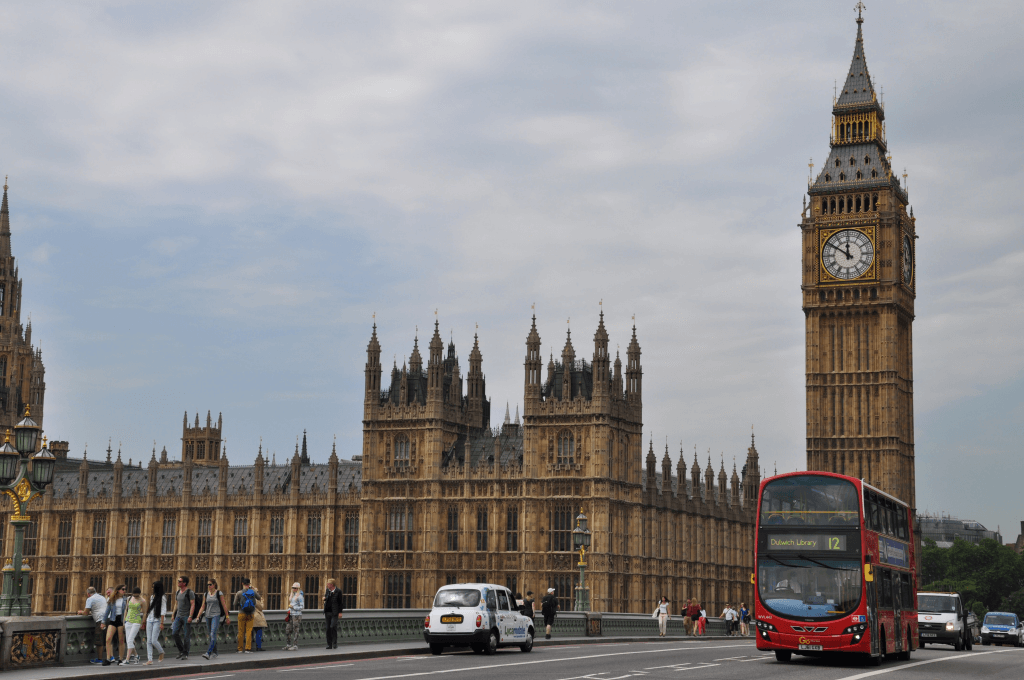
The Railway Workers’ Strike In Britain: A Symptom of the Degeneration of the Welfare Society Into Good Old-Fashioned Capitalism

Rail transport was once a symbol of the industrial revolution in Victorian England in the mid-19th century. England was home to the first railway and the world’s first underground railway, and at one time the British railway network surpassed the length of all the railways in Europe. The mass closures of industrial enterprises in the 1980s under Margaret Thatcher’s policies caused public apprehension, and often led to quite violent protests. At the time, patriots of the departing British Empire lamented that it was an act of losing its status as the “workshop of the world,” but liberals rejoiced at the country’s new image. Britain was being transformed for them into a financial market, IT, HiTech and ‘green energy’ hub without the dirty and smoky industries of the past. They were also going to make the railway industry “modern” and “innovative”.
Apparently, the patriots of those years were right after all. Not only Britain, but other countries in Europe, are now forced to reverse history. The image of a fabulous future without problems and worries is crumbling before our eyes. The coronavirus and the war in Ukraine have only exacerbated the consequences of years of bad economic decisions by the authorities. Not only has the promised paradise of unconditional income, green cities and robots to do people’s hard work not been achieved, but also the very principle of the welfare state that generations of Britons have fought for is under threat. The principles of early twentieth-century capitalism, where any miscalculations of business and government were to be paid for by the income of ordinary workers, are beginning to work.
Rail transport has also been hit. More than 40,000 railway workers are going on strike for three days.They are unhappy with the level of wages in the industry and the lack of increase in wages also, as well as the companies’ intention to extend working hours. The owners of the railway business are using all the best recipes of their predecessors of the last century and the century before, who solved all problems by reducing wages and increasing the workload. Mick Lynch, general secretary of the National Union of Rail, Maritime and Transport Workers (RMT), claims that 5,000 railway workers have been sacked as part of the modernisation process, most workers have not received a pay rise in two or three years, and railway companies want to increase the working week from 35 to 40 hours. The rage of the workers is understandable, but the transport chaos will affect millions of ordinary Britons, who bear no responsibility for these discriminatory measures.
What about the authorities and the business owners? They want to shift responsibility to each other and to ordinary employees and workers. Transport company Network Rail has said it is not planning any increase to its £41.7bn five-year budget. Chief executive Andrew Haines said any pay rise must come at the expense of savings and productivity, meaning he blamed the problem on the “poor” performance of railway workers themselves. In his view, in order to count on wage increases, they must have generated an extra 11.1% profit for the company, which in no way could have happened during the crisis, and therefore, they should shut their mouths, work in silence and thank him for not firing them all.
And here, he is in absolute solidarity with the Ministry of Finance. It has previously said that it will not finance public sector wage increases of more than 3%. The result is that, against a 40-year record inflation rate of 9.1%, working Britons are not even entitled, according to the government and corporations, to cover their losses, and are doomed to gradual hardship.

Transport Minister Grant Shapps has been particularly cynical and hateful towards workers. This razzle-dazzle respectable official claims that the situation is not that bad. According to him, during the pandemic the state allocated £16 billion to keep the railways running, without a single employee being sacked or sent to downtime. In addition, Shapps pointed out that railway workers’ wages have risen by 40% in the last ten years, which means the state no longer owes employees anything. He also falsely claimed that the average annual wage on the railway was already £44,000, although in reality it barely exceeded £31,000.
Schapps’ statements clearly showed the inhuman plans for “austerity” on the part of the government, and such frankness could even be considered a special sincerity on the part of the minister. He boldly made it clear that railway workers should not expect any relief in the future. In his view, “unions need to realise that the world has changed and people no longer need to use transport as much” and “many can also work from home and unions don’t seem to realise that people no longer need transport services as much as before”.
Not only will the situation in the economy not change for the better, but it is likely to become increasingly difficult. It should be clearly understood that the cuts in wages and public spending are not an accident, but a deliberate government policy to change the very face of society in Britain. And this image will correspond not to the ideals of the humanist philosophers, but to the worldview of Charles Darwin. The three-day railway workers’ strike is far from over, and other protesters, from industrial workers to civil servants, will join their ranks. It will be a brave attempt to do something to prevent Britain from being reborn as a nest of ‘beastly capitalism’. Everyone already expects a repeat of the events of the 1970s this summer, judging from the severity and intensity of the protests.
However, the issue is the weight of the demands and the willingness to put pressure on the government until it meets them. Not even a change from Conservative to Labour, which only mimics concern for social welfare, is likely to help – the bourgeoisie now no longer want to throw even “scraps” to wage earners. Margaret Thatcher didn’t compromise in the 80s, and that laid the far-reaching foundations for today’s crisis. Indecision can be devastating for a country’s future. However, Boris Johnson is a far cry from Thatcher in terms of willpower and intelligence, and there is some hope of success.

